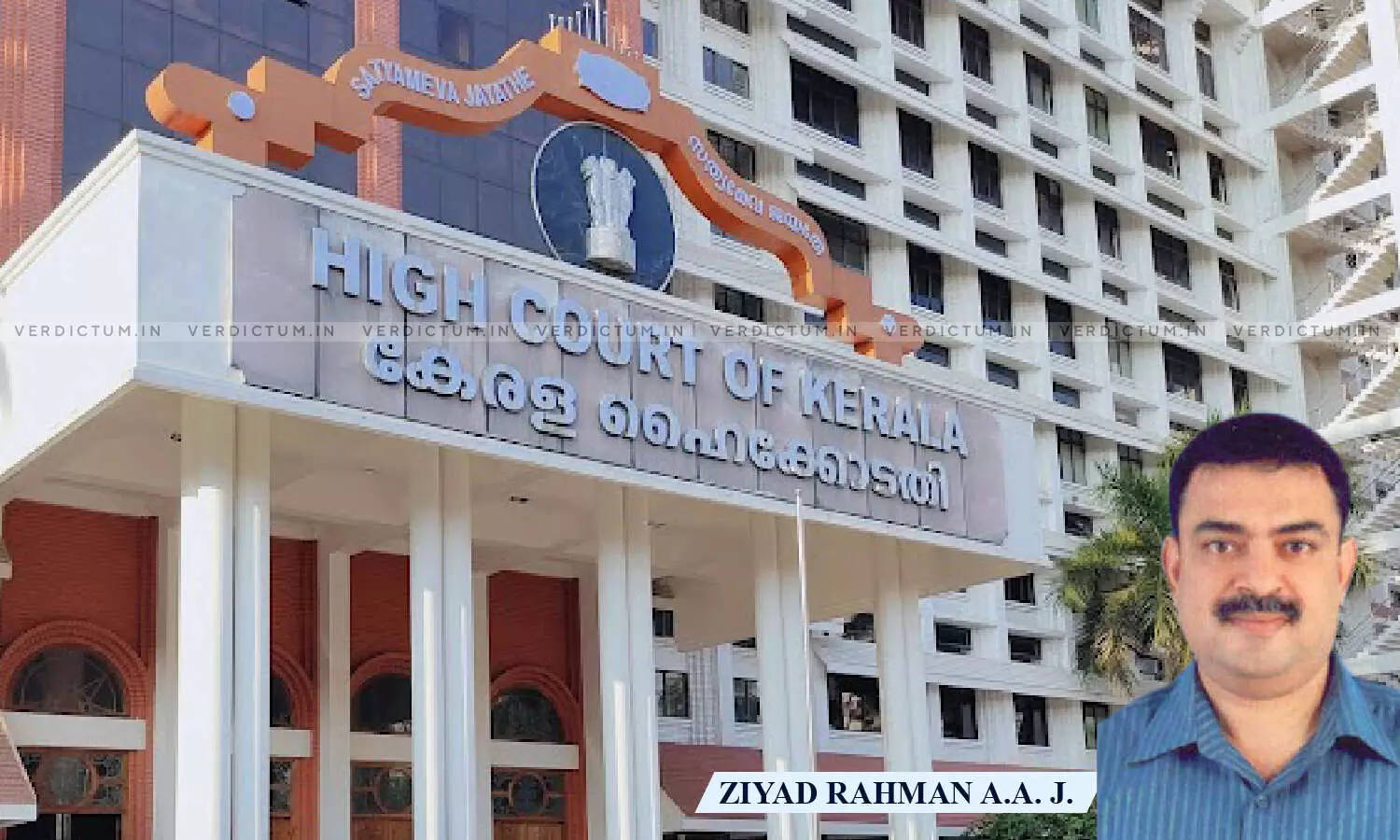
MV Act: Both Driver As Well As Owner Of Goods Carriage Are Liable For Carrying Excess Weight- Kerala HC
 |
|The Kerala High Court held that as per the provisions of Motor Vehicles Act, 1988 (MV Act) the registered owner of a goods carriage as well as its driver, both were liable for carrying excess weight in it.
The Bench of Justice Ziyad Rahman AA said that “the offence which is specified under Sub-section (3) of Section 113 starts with the words ‘no person shall drive or cause or allow to be driven in any public place any motor vehicle or trailer’ Therefore, the offence is not confined to cases where a person who drives the vehicle, and the offence would get attracted also in cases where a person causes or allows any vehicle to be driven in any public place with unladen or laden weight in excess specified in the certificate of registration of the vehicle.”
“Therefore, it is evident that both the acts, namely, the driving of a vehicle with excess weight (unladen or laden) as well as causing or allowing the driving of the vehicle with excess weight, would attract the offences, and these are separate offences which could be committed by different persons.” observed the Court.
In this case, the Court dealt with bunch of petitions filed by various owners and drivers of the goods carriages wherein the prosecution initiated against them by the Motor Vehicles Inspector was challenged. It was alleged against the petitioners that they had carried the excess load in their goods carriages and thereby committed the offences under MV Act.
Advocate P.M. Ziraj appeared for the petitioner and Public Prosecutor M.P. Prashanth appeared for the respondent.
It was contended by the petitioners that in the complaint amount of penalty payable by the accused in the event of being found guilty was specified and it also contained a prayer directing them to pay the fine as per the rates stipulated in a Government Order. Therefore, the proceedings need to be vitiated as such prayers were not legally permissible.
The Court said that “merely because of that reason, the complaint cannot be treated as vitiated. If there are sufficient averments in the complaint for prosecuting the accused on the basis of materials placed on record, nothing would preclude the court from taking cognizance.”
It was further contended by the petitioners that Section 114 of the MV Act specified the manner of dealing with vehicles that carried excess load but the officers concerned did not pass any order directing the drivers to off-load the excess weight and thus, the proceedings ought to be vitiated.
The Court said that the proceedings would not get vitiated on that ground because the offence was already committed by the accused persons as soon as the vehicle was found to be carrying excess weight.
Accordingly, the Court dismissed all the petitions.
Cause Title- Fasaludheen A v. State of Kerala represented by Public prosecutor
Click here to read/download the Order